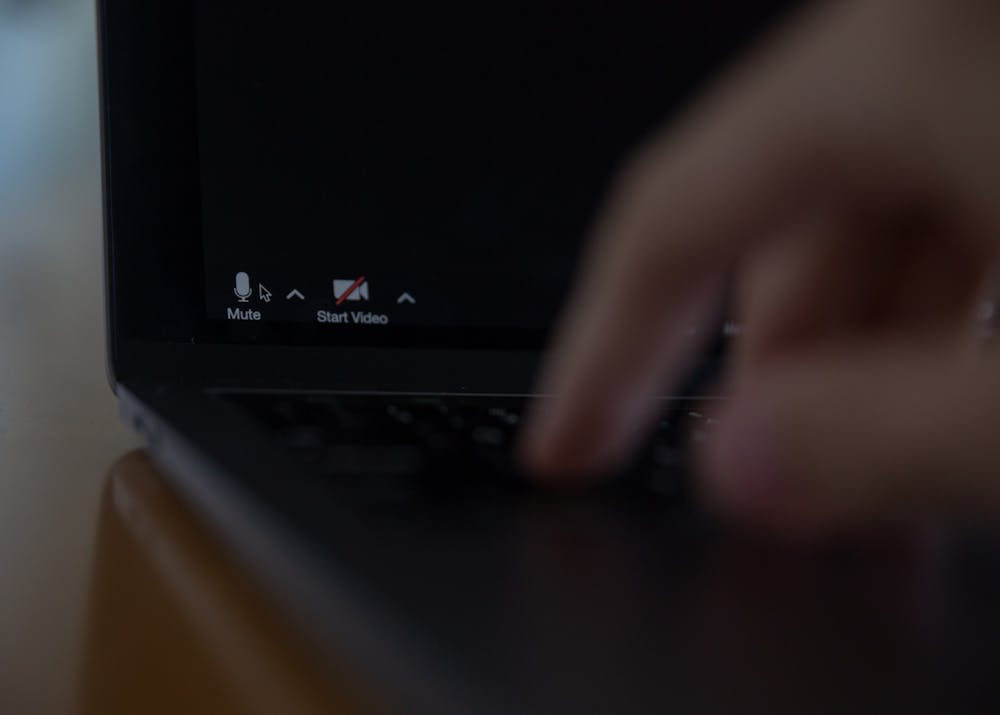“It would be easier if we were in person because we could just raise our hands and be like, ‘Professor, I don’t get this,’” she said. “But alas, corona.”
Dealing with the mute button
Keister said that another common issue students have with Zoom is remembering to mute themselves.
“I was in a drama class, and I had read a passage for the play and forgot to turn my mic off,” Keister said. “I’m just sitting there with my Bluetooth headphones on telling my dog how pretty she is.”
Keister said that when she turned back to her computer, she realized that while no one had said anything, people had definitely heard her.
Sara Beach, a first-year dental hygiene major, said a reason why some students forget to mute themselves is because some of their classes are automatically muted.
“Someone in one of my classes started singing and she wasn’t muted, and the teacher stopped and said, ‘That’s a really nice song,” Beach recalled. “I don’t think she realized the professor was talking about her."
Zoombombing
Caroline Murphy, a senior biology major, encountered a Zoombombing earlier this year at a minor program's interest meeting.
“They put a bunch of obscene words in a voice translator application, and just had it run over and over again,” she said. “They got it to be super loud, and they were drawing inappropriate pictures on the screen every time the professor tried to screen share.”
Murphy said that while college students are generally more aware of what’s going on when Zoombombings occur, it was still strange to experience it herself.
The Zoombombing was extended partly because of the professor’s unfamiliarity with the technology, she said.
To get the day's news and headlines in your inbox each morning, sign up for our email newsletters.
“It got really rude, where they were kind of taunting the professor,” Murphy said. “The Zoombombers, they were like, ‘People like you shouldn’t be running Zoom meetings, you shouldn’t have access to technology like this.’”
Gregory Bocchino, senior executive director for academic advising and student affairs and professor within the Gillings School of Global Public Health, said that there is a lack of awareness about threats like Zoombombing and how to deal with it.
“The couple of experiences I’ve heard from colleagues, it’s been quite disturbing,” he said. “Usually, the person hosting the event doesn’t know what’s happening. They’re like, ‘Wait, what happened to my screen?’ They don’t think, ‘Oh my gosh, this is a Zoombomb, I should just end it, and shut it down for everyone.’”
Bocchino said that teaching on Zoom has introduced new security issues that in-person classes didn’t have.
“Nobody’s going to run into your classroom shouting obscenities and racial slurs and epithets,” Bocchino said. “Unless there was some really crazy incident — in 25 years, I’ve never heard of anything like that happening in any of the universities I’ve worked for.”
Now professors are taking extra precautions when holding classes on Zoom, Bocchino said.
“For everything, we always have another person either co-hosting or behind the scenes with you co-hosting,” he said. “Because you just never know what may happen.”
university@dailytarheel.com




